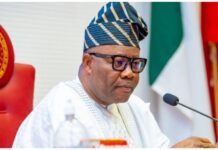By Ewache Ajefu
 The United Nations Childrens Fund( UNICEF), with the support of the Centre for Diseases Control and Prevention (CDC), and partners, is set to join hands with Koranic school teachers to address the current upsurge of polio cases in Nigeria.
The United Nations Childrens Fund( UNICEF), with the support of the Centre for Diseases Control and Prevention (CDC), and partners, is set to join hands with Koranic school teachers to address the current upsurge of polio cases in Nigeria.
Early in September, the Tsangaya School Strategy will be piloted in 10 high-risk local government areas of Jigawa and Zamfara States, to reduce the number of missed children during polio campaigns and help build community ownership of immunization.
“We continue to miss too many children during polio campaigns in Nigeria and that is why we continue to have cases,” said Paryss Kouta, UNICEF Chief of Polio Communication in Nigeria.
“Koranic school teachers, or Tsangaya teachers, have an important role to play in ensuring each and every child is reached during polio campaigns given the fact that many children can be found in their schools. Engaging religious schools, institutions and leaders will help build community ownership for immunization and help reduce on-going misconceptions and resistance to immunization.”
The Tsangaya School Strategy involves the full engagement of religious school teachers who are critical community leaders and opinion-makers in their communities.
According to Kouta, for polio eradication to succeed, it is important to engage and ensure the full participation of all sectors of society and in particular the communities themselves.
Advocacy meetings and sensitization workshops will be organized with high-level policy makers, traditional and religious leaders, including the Association of Proprietors of Koranic Schools in each of the participating local governments. Tsangaya teachers will also be engaged during immunization campaigns as part of the social mobilization teams within their respective settlements for the purpose of convincing those households which may refuse immunization.
This project will also engage Preachers and Imams, especially during Friday Mosque sessions to ensure the community is fully aware of the importance of immunization during every campaign and the risks to children who are not immunized.
Also Rallies with school children and other awareness activities will be further organized at the community level in each of the participating local governments.
The project will be implemented in Jigawa and Zamfara which are among the highest risk states in Nigeria where there is ongoing circulation of wild poliovirus. This year Nigeria is experiencing an upsurge in the number of polio cases, with a total of 69 cases of wild poliovirus in 11 states, compared to 31 in 6 states in 2011. Community resistance continues to be a key challenge in these states, where the proportion of refusals accounted for 23% of missed children in the July 2012 Immunisation Plus Days.
Three more immunization campaigns are scheduled for the remaining part of 2012. It is hoped that the active participation of Tsangaya teachers and religious leaders will help put an end to polio in Nigeria. The next campaign is scheduled for September 22-25 in the high-risk states of Northern Nigeria.



